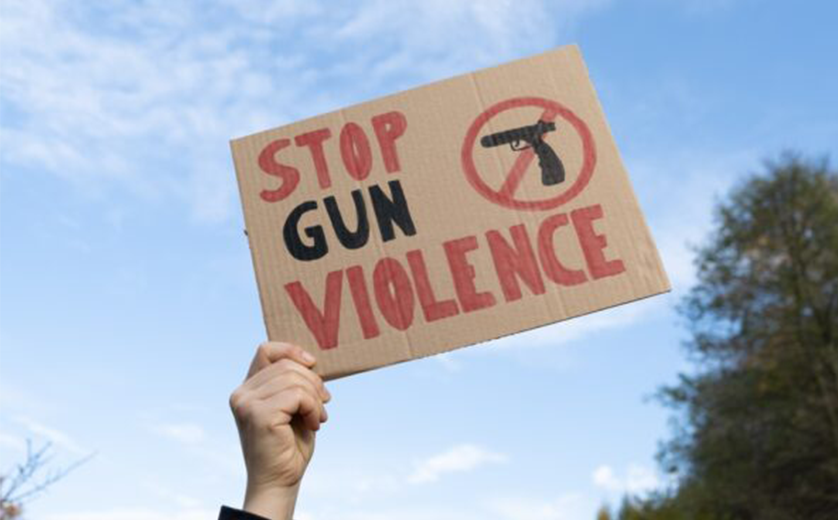When it comes to curbing gun violence in America, the field of public health should consider focusing less on the guns themselves and more on a rising sense of distrust that makes people reach for guns in the first place, says a researcher from the Brown School at Washington University in St. Louis.
“Public health has long ignored the political and social aspects of gun ownership and failed to recognize that firearms are, for many people, a means of replacing fear and uncertainty with a sense of strength and self-sufficiency,” said Caitlin McMurtry, an assistant professor. “Before we can make progress toward a safer society, we need a better understanding of, and more research on, Americans’ motivations for self-armament.”

McMurtry, whose research seeks to understand how public opinion, politics and government affect health and inequity in the U.S., is the author of “The Changing Politics of Guns in America,” published recently in the Journal of Health Politics, Policy and Law.
The piece discusses changes to the U.S. gun landscape before, during, and after the COVID pandemic, the Trump administration’s approach to the Second Amendment, and what it means for the future of gun politics in America.
“Whereas public health often focuses on the gun itself, such as how it is stored or handled, I argue we must tackle the root cause of gun purchasing: pervasive fear and distrust,” McMurtry said.
“So long as Americans feel they must take matters into their own hands and that no government, institution or community can be relied upon to protect them, we will continue to see high rates of gun buying, ownership and public carrying,” she said. “Only when we decrease the need for a gun, by engendering greater trust and positive socialization across society, can we hope to create a less heavily armed and safer society.”
We have entered a new period of gun violence, politics and policy in the United States, McMurtry argued.
“As distrust grew during the pandemic, so did rates of gun ownership and gun violence,” she said. “Meanwhile, changes to gun-related political interest groups, federal court decisions and state policies have reshaped gun politics and policy by loosening restrictions on carrying a loaded gun and decentralizing advocacy for firearm deregulation.”
The pandemic affected gun ownership and politics in several important ways, McMurtry wrote in the paper.
- The National Rifle Association (NRA) collapsed due to corruption, leaving many fractured groups to fill the void.
- The Supreme Court struck down a popular type of concealed-carry regulation (“may-issue” laws) and created a stricter standard for assessing the constitutionality of firearm laws.
- Gun purchasing soared, but unlike previous spikes in firearm sales, many guns were sold to first-time buyers. New owners appear more diverse, politically liberal and motivated by fear of racial and political violence. At the same time, they also report being more willing to engage in political violence if they deem it necessary.
- Since the pandemic, 14 states have passed permitless carry laws. This means that as of today, more than half of U.S. states (29), including Missouri, allow almost any adult to carry a concealed, loaded firearm in public without a license or permit.
- This may be why more adults are reporting carrying loaded guns in public. After the pandemic, about one in three women and half of men say they have done so in the past month.
In the article, McMurtry documented that at the same time these changes occurred, Americans increasingly distrusted their government, societal institutions and each other.
“In a world that feels increasingly scary and tumultuous — and one that felt particularly frightening during the pandemic — it makes sense that millions of Americans feel a sense of duty and a calling to defend their friends and family by buying a gun and having it at the ready,” she said. “However, those same instruments of protection substantially raise the risk of our loved ones being injured or killed by a bullet.”
